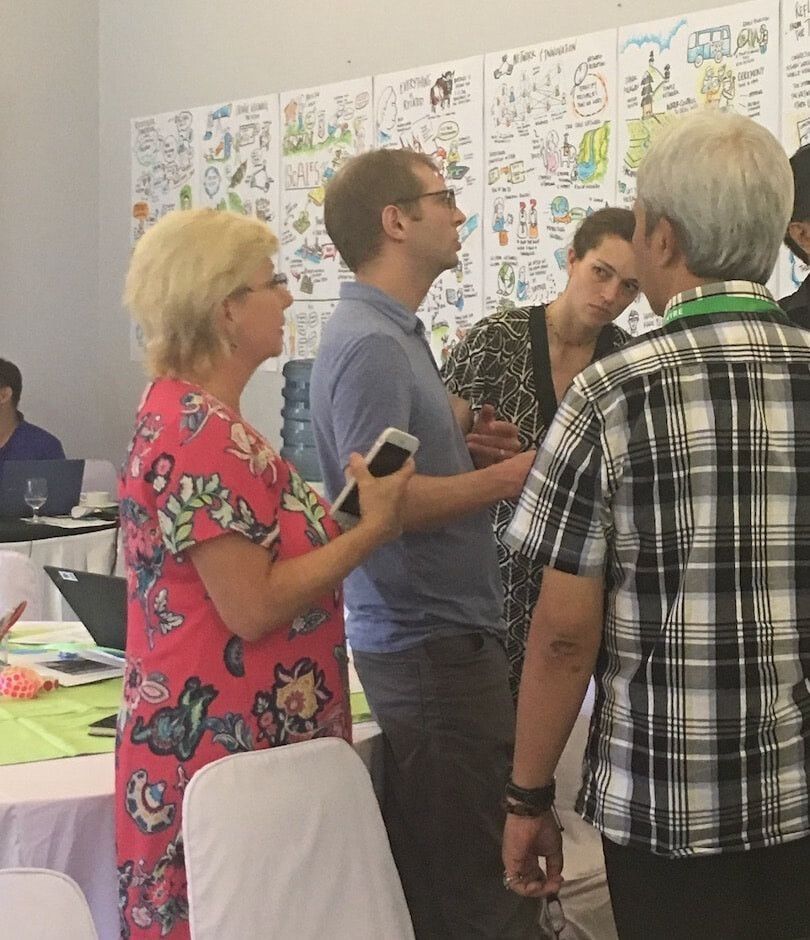
The Kinnect Group regularly provides mentoring, training and evaluation capacity building at conferences, academic courses, professional development workshops, and for clients in-house.
The training draws on our specialist expertise in areas such as:
- Evaluation basics including:
- Logic models
- Theory of change
- Evaluative rubrics
- Evaluation-specific methodology
- Developmental evaluation
- Systems thinking and complexity approaches
- Kaupapa Māori and Indigenous evaluation
- Value for money
Recent examples of the training
we offer
Our approach to value for money (VFM) recognises that there are no gold standards when it comes to determining whether a policy, program or social investment is worth doing, and that good resource use can be more complex than return on investment alone. Our ‘Value for Investment’ approach combines good evaluation practice with economic methods of evaluation to support well-evidenced, well-reasoned judgements about VFM. We do this by joining the forces of:
- Explicit evaluative reasoning – using rubrics to define dimensions of VFM and levels of performance, providing a transparent basis for making sound judgements
- Mixed methods – combining quantitative and qualitative evidence to support a nuanced and comprehensive understanding of program costs, processes, consequences, and value
- Economic methods of evaluation (e.g., cost-benefit analysis, cost-effectiveness analysis, cost-utility analysis) where feasible and appropriate, without limiting the analysis to economic methods and metrics alone
- Bringing the full ‘evaluation toolkit’ to support credible evidence and reasoning – for example, culturally responsive evaluation, participatory approaches, systems thinking and complexity-informed approaches, and multiple strategies for approaching causality and contribution.
Julian King offers workshops on how to address evaluative questions about value for money, combining economic analysis with other evaluation approaches. Please Contact Julian for more information on our Value for Money workshops.
Developmental evaluation supports innovation development to guide adaption to emergent and dynamic realities in complex environments (Michael Quinn Patton, 2010).
Developmental evaluation supports the ongoing development and adaption of a programme, or innovation in emergent and complex situations.
Kate McKegg and Nan Wehipeihana offer workshops and mentoring on the design and use of Developmental Evaluation. In January 2017 they ran a developmental evaluation workshop for the Rockefeller Global Fellowship on Social Innovation in Ubud, Indonesia; and in May 2017 with Dr Nora Murphy they will offer a full-day workshop at the Canadian Evaluation Society annual conference in Vancouver, Canada.
Please contact Kate McKegg or Nan Wehipeihana for more information on our Developmental Evaluation workshops.
Government agencies are approaching us to build skills in developing and using outcome logic frameworks.
With increasingly complex interagency collaborations outcome logic models are useful for
- creating a shared understanding of what policies, programmes and projects are trying to achieve
- helping clarify the different inputs and outputs for which different agencies are responsible
- help keep cross-agency projects on track over time, ensuring they keep their core focus and stay on track.
Judy Oakden has developed three short interactive training sessions to help up-skill staff in the use of outcome logic frameworks. She can offer the workshops either online or in person. For more information, please contact Judy.


